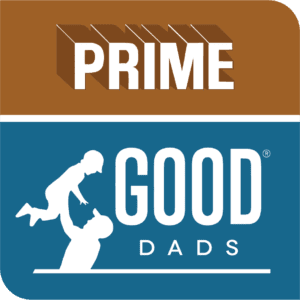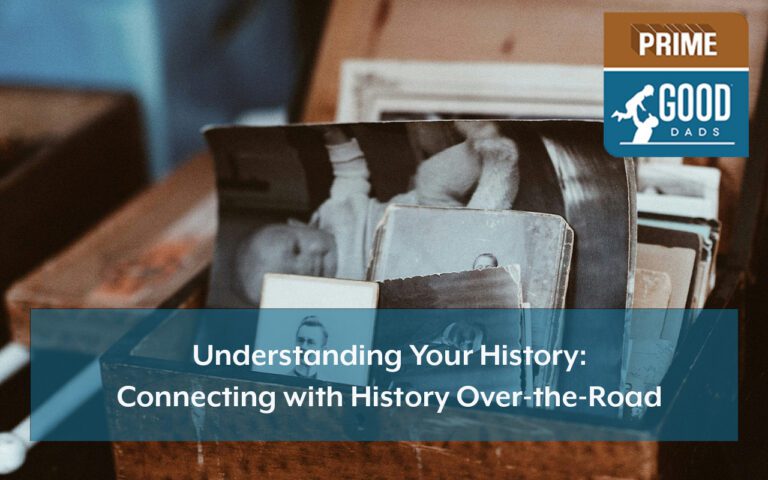Think back to History class when you were in school. Was it one of your favorites, or were you the first to fall asleep during a lecture? Do you find history fascinating or see it as just boring tales of folks long gone?
This week, we’re diving into the importance of learning history to not only learn from the past but to stay connected with your family over-the-road. This week on the Prime Good Dads blog, we spoke with Bruce Reeves, a Prime driver for nearly five years, and Joan Hampton-Porter, curator for 20 years at the History Museum on the Square in Springfield, Missouri.
Learning family history reveals once-hidden truths
In a previous blog post, Prime driver Buddy Gray discussed the importance of family and how learning more about your family can strengthen the bond.
Bruce has a similar sentiment about family history. He had a late uncle who was interested in genealogy and learned a lot about his early family’s history through him.
“He found a letter that had been passed down for God knows how long,” Bruce recalled. The letter revealed information on a relative who was one of the first to arrive in the “new world” at Plymouth Rock. This letter was the catalyst for the family to learn more.
As it turns out, the family discovered that Bruce’s grandmother was a distant relative to the English explorer and navigator Henry Hudson.
When we take the time to explore our family’s history, it can help to strengthen the bond between a father and his family. It provides a line of communication that allows stories to be told and memories to be made.
See how different family members engage with history
While working at the History Museum on the Square, Joan said she loves seeing people’s reaction to the exhibits and collections the museum displays, and watching people engage with it. She described it as “multigenerational communication” that sparks discussions. While guests visit the museum, parents and grandparents tell stories to youngsters about where they were and what they were doing in history.
Joan stressed the importance of “knowing family history” and “finding ways to engage.” When it comes to being an over-the-road father, sharing your story is also important! Connect with older relatives if you can and see if they can be a part of your support network as a Prime driver. Building a network of folks on whom you can rely is crucial.
Learn what your last name means
Bruce shared the meaning of his last name with Good Dads. The name Reeves is an old English name, and surnames often came from occupation (mason, carpenter, etc).
“In Old England, the reeve was the town constable or law enforcement in England,” Bruce said. “In smaller towns, where a reeve lived over one area, it was the Shire Reeve. That’s where the name ‘sheriff’ comes from.”
Find out where your family name comes from. Not only is it a great conversation starter, but it can also contribute to your family’s sense of identity.
History is a great way to learn from the past
Some may be wondering: What’s the point in learning history, anyway? It’s all in the past, so what does it matter? To that, both Joan and Bruce provided the same sentiment: Those who forget history are doomed to repeat it.
Joan said that learning history is crucial to “know what came before and where we come from to figure out where we’re going.”
Bruce has similar feelings when it comes to learning from the past.
“Look at the mistakes we’ve made in history and see how we can avoid that in the future,” he said. Bruce provided concentration camps in World War II or the American Civil War as examples. Neither showcase the good sides of history, but it’s still important that we remember and acknowledge their existence so we can learn from them.
“Not everything that happened was good,” Bruce said. “We acknowledge that. It shouldn’t have happened, and we learn from that.”
Know your sources
If you’re looking to learn more about your family’s history, communication is key.
“Talk to family members,” Joan emphasized. “They might be able to tell what they’ve gone through and experienced.”
As a museum curator, obtaining factual information is crucial for Joan to do her job. The same goes for anyone who wants to investigate history.
“If you are doing research,” she said, “know your sources.”
While there are some valid sources out there, others provide misinformation or distortions. Joan suggests looking for at least three different resources to ensure that you’re obtaining facts.
Find something that interests you
It’s easy to see how history can be a valuable tool for observing the past to make decisions about the present and future—but more than that, learning about your favorite historical time periods can be a productive and educational hobby for anyone.
For Bruce, one of his favorite eras in history is the Civil War and Reconstruction era that followed, because of how much change occurred in our country during that time.
“I like, not the Civil War itself, but the advancements in society and how much the country changed coming out of the Civil War,” he said. “It brought us together through industry, the rail system took off, supply lines, and the development of Kansas City, Oklahoma City, and Chicago, these immense cultural and economic centers. You see how that history shaped where we are today, shaped our country politically and economically.”
Joan particularly loves learning about local history and the dynamics between different people in the past, saying there are similarities and differences.
“I love local history and learning how people really lived 50, 100, 200 years ago, and how their lives changed,” she said. “It makes people understand what was going on … Local history helps us understand the big topics.”
Final Words
If you’re not sure where to start when it comes to history, Joan suggested starting with family and topics that you’re interested in.
“History is so incredibly broad,” she said. “It might be family history, trains, antique quilts, the Civil War, or World War II. Find something that interests you. I don’t think any history is boring if you delve into something you love.”
While history is important to learn, it’s equally important to remember that not all of history is going to be pleasant to learn about. It’s better to acknowledge and learn from history than to ignore it.
“History is what it is.” Bruce said. “Sometimes it’s bad, that doesn’t mean we have to put it on a shelf and ignore it. Look at all history and learn from it. It all happened for a reason.”
Hungry for more history? Read a previous Good Dads blog featuring Springfield’s History Museum on the Square, or visit their official website.
Author
-

Dora joined the Good Dads team in 2024 and has a Bachelor's degree in journalism with a minor in creative writing at Missouri State University. She grew up with a truck driving father and loves reading, writing and anything related to theater.
View all posts

